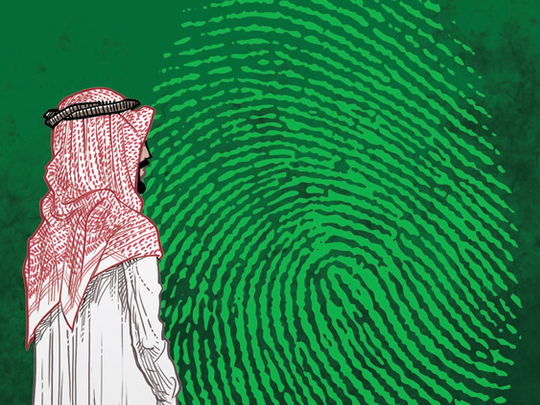
The situation of an expatriate in the Gulf Cooperation Council (GCC) varies from one country to the other. The frame of mind also varies according to the professional position and stature that the expatriate is awarded. The fortunate ones are those who command high salaries and high positions and along with that a degree of acceptability, while the ones with lesser skills and income sometimes find themselves targets from an aggressive media.
In the Kingdom of Saudi Arabia in recent times, there has also been an underlying wave of resentment from some Saudi quarters against all expatriates. It could have been triggered by the highly publicised and massive drive by the government to deport illegal residents at the conclusion of the period of amnesty granted to the workers to correct their employment status. Criminal activity on the part of a few of the illegal workers also helped in the process of generalising that nothing good came of these workers. They were all lumped in one pot — the good, the legal and the illegal.
But there are many other Saudis who do not appreciate this expression of discrimination against expatriates and have gone out of their way to reassure the lawful residents that they are certainly not among the ‘unwanted’’. In television and newspapers, many Saudi writers openly acknowledged that expatriates had played and continue to play a significant role in the development of the country. To deny that would be to deny the truth.
The Kingdom, unlike the rest of the GCC, has a significant draw for Muslims the world over. It is the home of Islam’s two holiest shrines in the cities of Makkah and Madinah. Generations of such people have come here, lived and worked and even gave birth to children in this country, many of whom know of no other home than Saudi Arabia. Their reason for staying here and making this land their home was not purely based on economic issues. They felt peace and closeness with the Almighty in this land. Unfortunately, as their children grew up and became adults, their dependency status was disqualified and they stood a chance of being deported.
This has hit a raw nerve in one such child of an expatriate who vents his frustration at a system that he sees as rejecting him without consideration of his journey. The person, T.K. says: “I myself was born in the Kingdom 20 years back and am still living here since. My father arrived in the Kingdom 35 years back and he is still working as an engineer in the Ministry of Defence and Aviation, King Khalid Military City. Some expats have lived longer and contributed to the Kingdom. In return, I feel that the government should at least grant citizenship to the skilled or at least allow them Permanent Residency cards, like the so called ‘Green Card’ in America.
“For children like me, there is no other home, other than this Kingdom. Today, I live in fear. What if one day by the immigration rules I may have to leave Saudi Arabia? What if my father’s job is over? We would then be forced to return to a country where I’ve never been, but which happens to be mine by nationality.
“So what do I want, being a Saudi born and bred here:
1. Citizenship for the skilled who have lived continuously in this country for more than 25 years.
2. Those who were born in Saudi Arabia of legal status and reached the age of 20 should get nationality if they so desired.
3. If the two points above are hard to get, at least let them be granted ‘Permanent Residency Cards.
“Many Saudis whom I know ask me if I have got citizenship. I reply to them that the existing system of citizenship is very difficult and fulfilling the 23 qualifying points is not easy for most. There has to be a change in the citizenship system. Some Saudis are shocked when they notice that I have an Iqama. They cannot believe I am an Indian, as all my language and mannerism traits have been moulded growing up in this land.
“What I want to state is that after being born here, grown up here and accustomed to Saudi culture, I have the ‘right’ to get a Saudi nationality without too many hurdles. It will be of great justice if at least our voices are heard.”
T.K. presents a valid argument. He is a Saudi in every sense of the word except for his passport. He knows of no other country other than the land of his birth to call home. His father undoubtedly provided the Kingdom with badly-needed skills and expertise. The Kingdom benefited from his contribution and such efforts should be recognised and honoured. One can only look at the US and its experience with immigration in the early part of the 20th Century, which eventually propelled them to be the greatest nation on earth. We would be better off harnessing the talent and energy of our own aspiring home-grown immigrants. They would certainly contribute to and enrich the social, economic and cultural diversity of the country.
Tariq A. Al Maeena is a Saudi socio-political commentator. He lives in Jeddah, Saudi Arabia. Follow him on Twitter at www.twitter.com/@talmaeena










